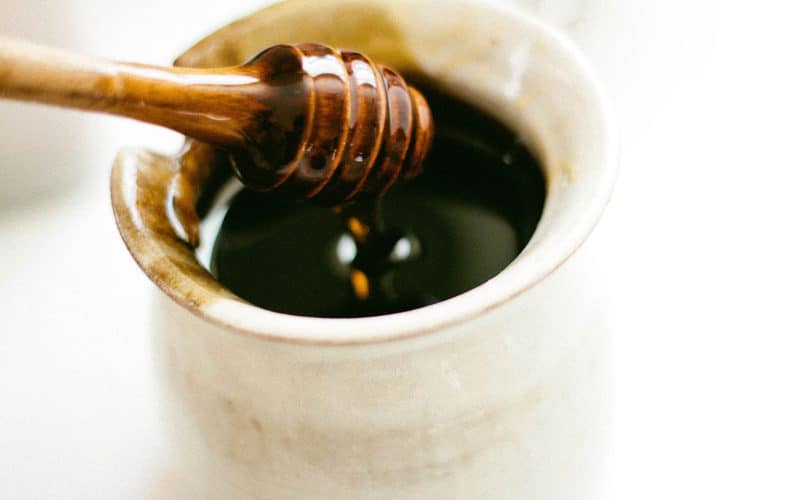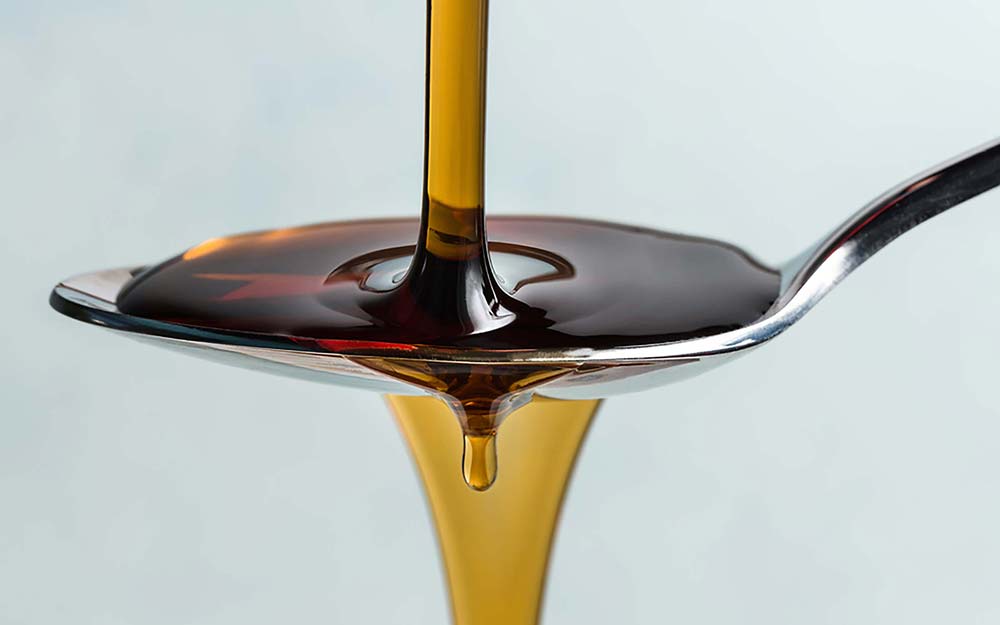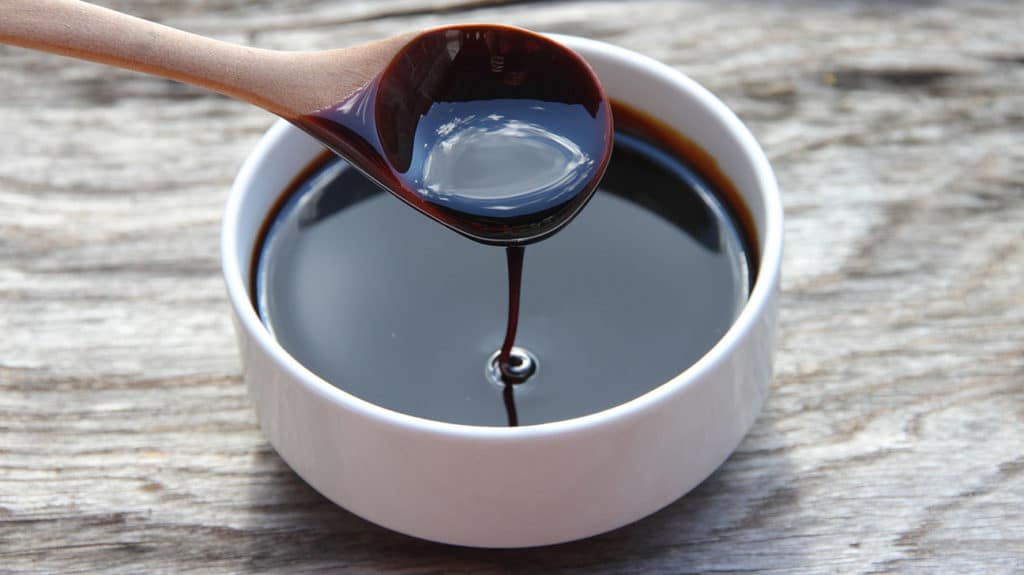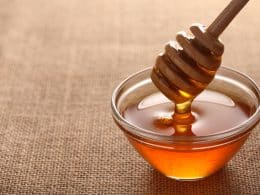Molasses is a sweetener that is gotten as a byproduct from the extraction of sugar from sugar beets or sugarcane. It is a brown syrup that is very popular in countries where sugar beets and sugarcane are cultivated heavily.
In sugar making process, sugar beets or sugarcane is crushed, and the juice is extracted. The extracted juice is boiled until the sugar crystallizes, leaving a thick brown syrup called molasses.
The process is repeated several times, and a different type of molasses is produced each time. Molasses can vary in sweetness, nutritional value/content, and color depending on the quantity of sugar that has been extracted.
Types of Molasses
The common types of molasses vary in flavor/sweetness, color, consistency, and sugar content. They are gotten from each boiling cycle of sweet beets or sugarcane juice. They are listed below;
1. Light Molasses
It is the syrup left from the first boiling cycle of sweet beets or sugarcane juice. It contains the highest sugar content, which makes it the sweetest among the various types of molasses. It also has the lightest color and a mild flavor.
- It contains 40% less sugar as well as minerals, and vitamins such as calcium and iron.
- It is used for baking bread and cookies. It makes the bread more crusty, and cookies are slightly softer.
2. Dark Molasses
It is the syrup left from the second boiling cycle of sweet beets or sugarcane juice. It contains less sugar, and it’s darker than light molasses.
- It also contains minerals and vitamins such as calcium, magnesium, and iron.
- It is also used for baking. Although it lends food a distinct flavor and color.
3. Blackstrap Molasses
It is syrup left from the third boiling cycle of sweet beets or sugarcane juice. It has a bitter flavor.
- It is the thickest and darkest. It contains the least amount of sugar and the highest amount of vitamins and minerals.
- It contains minerals and vitamins such as calcium, iron, magnesium, selenium, potassium, and vitamin B6. It is considered as the most beneficial of all the types of molasses.
Some of it’s benefits include;
- Bone booster: Blackstrap molasses contains both calcium and magnesium, which are needed for growing and building strong bones. About 1tbs of blackstrap molasses contains 3% of recommended daily value for calcium and 12% for magnesium.
- Helps to ease muscle cramps: Blackstrap molasses contains potassium, which helps to ease muscle cramps and also lower high blood pressure.
- It can serve as a hair de-frizzier: Blackstrap molasses can be used to remove fizziness from permed or colored hair. It can also be added to shampoo.
4. Sulfured molasses
It is called sulfured molasses because it contains sulfur oxide, which acts as a preservative and prevents molasses from spoiling.
Other substitutes for molasses include;
- Sorghum molasses: This type of molasses is not made from sweet beets or sugarcane. It is made from a cultivated grass called Sorghum from which sugar can be extracted. Sorghum syrup has a sweet-sour flavor, and it’s used in southern cuisine.
- Pomegranate syrup: Also called pomegranate molasses syrup is made from pomegranate juice, sugar, and lemon juice. It is also dark and sticky and can be stirred into drinks, whisked into salad dressings, and used for other food preparation process.
- Date syrup: It is a caramel-colored sweetener made from date fruit. It is used to bake cakes like quinoa chocolate cake, which has no need for refined sugar.
- Carob syrup: It is a delicious sticky sweetener that is made from carod pods. It is also used for making sauce, baking cakes and cookies, salad dressings, and marinades.
Uses of Molasses
Molasses is a sweetener that has proven to be not just a sweetener but a healthy one. It is mostly used for;
- Flavoring bread and cookies.
- Adding a darker color to baked foods such as cookies.
- Making pancake syrup or stirred into hot oatmeal.
- Softening foods and sweetened drinks.
- Flavoring additive for tobacco products.
- Making rum and brewing dark ales.
How to Store Molasses
Any type of molasses should be stored in a cool, dry place such as a cupboard or kitchen shelf. Make sure you wipe the rim of the container or jar clean after each use before you secure the lid.
You can also store it in the refrigerator if your kitchen gets warm. Exposing molasses to heat can cause bacteria growth.
Molasses has a shelf life of about two years when unopened and about a year when opened. When you notice discolored patched or off-odor from molasses, then it is no longer good for use.
Nutrition
Unlike refined sugar, molasses contains vital minerals and vitamins. The amount of nutrients present depends on the type of molasses. Blackstrap molasses has the highest nutrient content among the various types of molasses.
1tbs of molasses contains the following amounts of the daily recommended nutrient value: Calcium 3%, Iron 5%, potassium 6%, selenium 6%, vitamin B6 8%, copper 11%, magnesium 12%, and manganese 13%.
Molasses is also high in sugar which is good for children between the age of 2 to 18.
Potential Benefits of Molasses
Some known benefits of molasses are listed below.
- Bone care: Molasses contains calcium, iron, copper and selenium, which helps to maintain bone’s health. It can also help to guide against osteoporosis.
- Haircare: Molasses helps to soften and condition hair. It also prevents hair from premature graying.
- Blood sugar: Blackstrap molasses can help to stabilize blood sugar levels and helps to prevent the accumulation of excess fat in the bloodstream.
- Antioxidant: Compared to other sweeteners such as corn syrup, refined sugar, pomegranate syrup, raw sugarcane which are readily available, blackstrap molasses contains the highest amount of antioxidant. These antioxidants help to protect the body against oxidative damages.
- Culinary use: It is useful for baking goods such as bread, pies, cookies, gingerbread and baked beans. It is also used in making rum.
Possible Side Effects
Although molasses is a good alternative for refined sugar, taking too much-added sugar could have diverse effects on one’s health, especially people with diabetes.
Consuming molasses in large quantities may cause digestive system disorders such as diarrhea.
Conclusion
Although molasses has lots of health benefits, it is not advisable for one to depend on molasses as the major source of these nutrients. Too much consumption of molasses may not be good for adults as some brands of molasses contains lots of sugar.
Eating other healthy foods such as nuts, dairy products, fruits, vegetables, eggs, etc. is also important for healthy growth.
References;
- Molasses Vs Sugar; Medical News Today
- Benefits of BlackStrap and Molasses; Healthline
- What is Molasses?; The Spruce Eats











